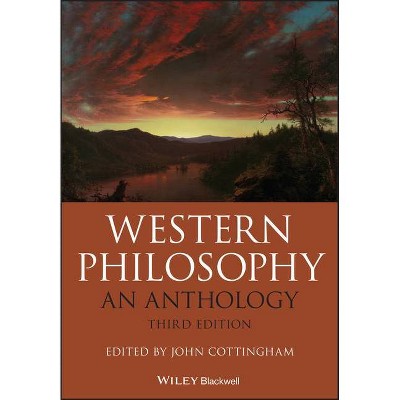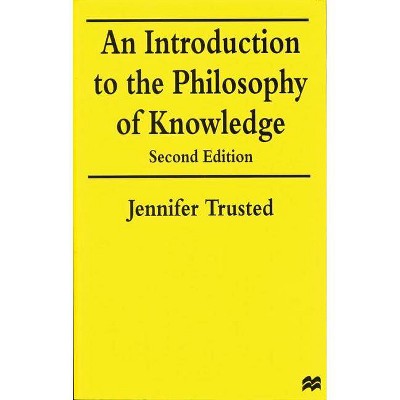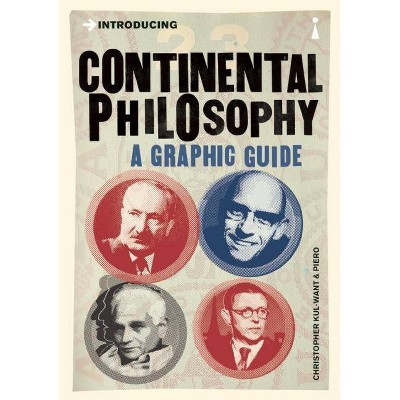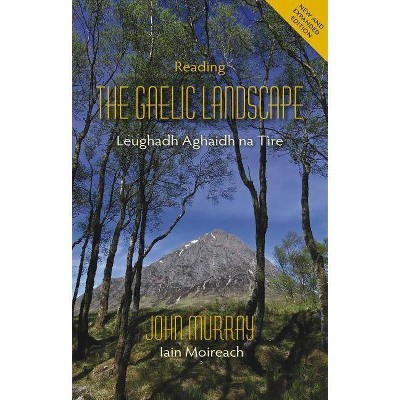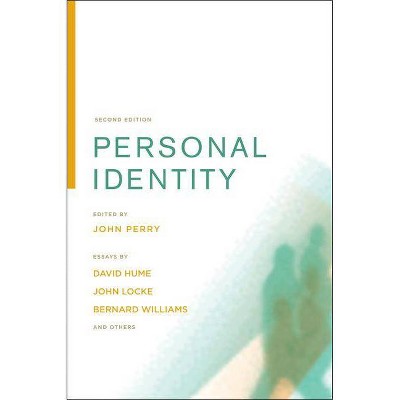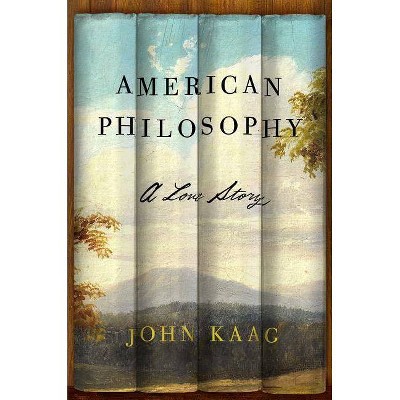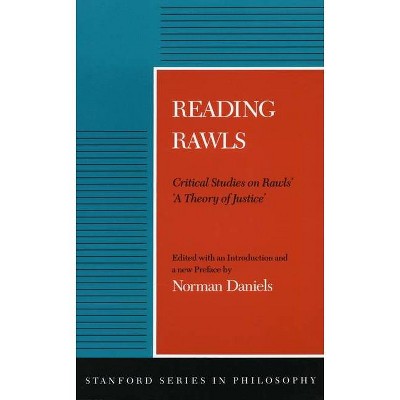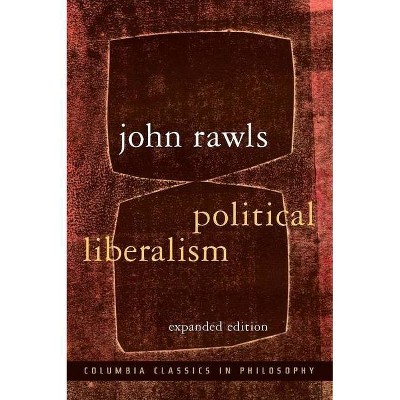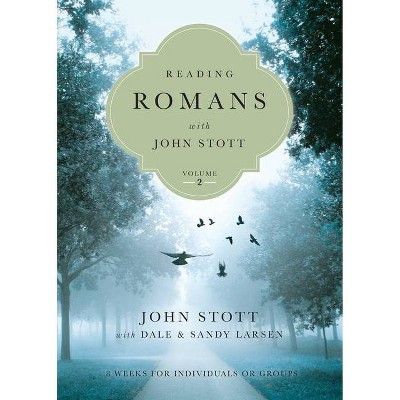Reading Philosophy - 2nd Edition by Samuel Guttenplan & Jennifer Hornsby & Christopher Janaway & John Schwenkler (Paperback)
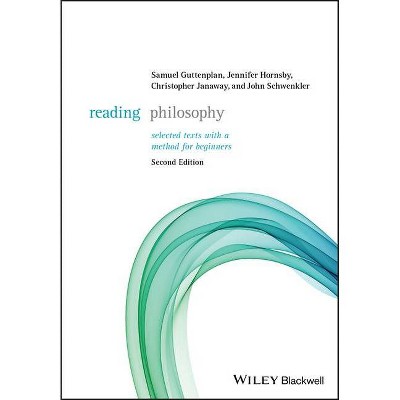
Similar Products
Products of same category from the store
AllProduct info
<p/><br></br><p><b> About the Book </b></p></br></br>"Philosophy is intriguing even to those who know little of it. But the sort of philosophy studied at universities is difficult to enter into on one's own. Reading Philosophy was designed to overcome this difficulty. It is a book for those who want genuinely to engage with the subject, either on their own or in the context of taught introductory courses"--<p/><br></br><p><b> Book Synopsis </b></p></br></br><p><b>A key introductory philosophy textbook, making use of an innovative, interactive technique for reading philosophical texts</b> </p> <p><i>Reading Philosophy: Selected Texts with a Method for Beginners, Second Edition, </i>provides a unique approach to reading philosophy, requiring students to engage with material as they read. It contains carefully selected texts, commentaries on those texts, and questions for the reader to think about as they read. It serves as starting points for both classroom discussion and independent study. The texts cover a wide range of topics drawn from diverse areas of philosophical investigation, ranging over ethics, metaphysics, epistemology, philosophy of mind, aesthetics, and political philosophy. </p> <p>This edition has been updated and expanded. New chapters discuss the moral significance of friendship and love, the subjective nature of consciousness and the ways that science might explore conscious experience. And there are new texts and commentary in chapters on doubt, self and moral dilemmas.</p> <ul> <li>Guides readers through the experience of active, engaged philosophical reading </li> <li>Presents significant texts, contextualized for newcomers to philosophy </li> <li>Includes writings by philosophers from antiquity to the late 20<sup>th</sup>-century </li> <li>Contains commentary that provides the context and background necessary for discussion and argument </li> <li>Prompts readers to think through specific questions and to reach their own conclusions </li> </ul> <p>This book<i> </i>is an ideal resource for beginning students in philosophy, as well as for anyone wishing to engage with the subject on their own. </p> <p> </p><p/><br></br><p><b> From the Back Cover </b></p></br></br><p>"This edition enhances an already outstanding resource, offering a practical guide to important new topics--such as friendship and consciousness--and philosophers including Aristotle, Ryle, and Nussbaum."<br/> <b>--Guy Longworth, </b> <i>Warwick University</i> <p>"The book is very well done, with an attractive combination of breadth and depth. Too often, introductory textbooks are comprehensive at the cost of serious attention to important specifics. This book helps the introductory student get down to the careful work of doing philosophy."<br/> <b>--David Sosa, </b> <i>University of Texas at Austin</i> <p>"<i>Reading Philosophy</i> is an excellent introduction to philosophy, especially as it is practiced in the analytic tradition. Students are given the opportunity to learn how to identify conclusions and premises of key arguments and enter into conversation with the readings. I know of no other text which introduces students to the practice of philosophy as this one does."<br/> <b>--Roger P. Ebertz, </b> <i>University of Dubuque</i> <p>Learning to think philosophically requires reading and understanding philosophical argument, which can be prohibitively dense and technical for those who genuinely want to engage with the subject, either on their own or in the context of an introductory course. <i>Reading Philosophy: Selected Texts with a Method for Beginners, Second Edition</i> overcomes this difficulty by training readers in the work of active reading, abstract thinking, and critical analysis through concise editorial commentaries that interact with primary readings curated to introduce foundational concepts in philosophy. <p>Unlike introductory books which summarize the views of major thinkers, <i>Reading Philosophy</i> requires the reader to <i>do</i> philosophy by tracing the arguments that make those views significant through the primary texts themselves. The volume is organized thematically around topics drawn from diverse areas of philosophical investigation--including ethics, metaphysics, epistemology, philosophy of mind, aesthetics, and political philosophy--and each chapter contains a conceptual overview, introductions to the texts and their authors, and interactive commentaries on the readings. In addition to expanded treatment of doubt, self, and moral dilemmas, chapters new to the second edition discuss the moral significance of friendship and love, the subjective nature of consciousness, and the ways that science might explore conscious experience. <p>Direct and methodical, the expanded second edition of <i>Reading Philosophy</i> preserves what is fascinating about philosophy while facilitating its serious study, strengthening the book's reputation for helping beginning students and general readers alike to appreciate the richness of the subject.<p/><br></br><p><b> About the Author </b></p></br></br><p><b>Samuel Guttenplan</b> is Emeritus Professor of Philosophy at Birkbeck, University of London, retiring after nearly 35 years in Birkbeck's philosophy department. Professor Guttenplan was the founding Executive Editor of the interdisciplinary journal <i>Mind & Languagein</i> 1986 and he served in that capacity for five and then sixteen years from 2000, continuing now as an Editor. His research interests include the philosophies of mind, language, philosophical logic, and ethics. <p><b>Jennifer Hornsby</b> is Professor of Philosophy at Birkbeck, University of London. She is Emeritus Fellow of Corpus Christi College, Oxford, and a Fellow of the Norwegian Academy of Science and Letters, of the British Academy, and of the American Academy of Arts and Sciences. <p><b>Christopher Janaway</b> is Professor of Philosophy at the University of Southampton. He is general editor of the Cambridge Edition of the Works of Schopenhauer, and has published widely in the history of philosophy, particularly on Schopenhauer and Nietzsche, and in aesthetics. <p><b>John Schwenkler</b> is Professor in the Department of Philosophy at Florida State University. He is the author of <i>Anscombe's 'Intention' A Guide</i>. Professor Schwenkler's research is in the philosophy of mind and action, ethics, epistemology, and cognitive science.
Price History
Price Archive shows prices from various stores, lets you see history and find the cheapest. There is no actual sale on the website. For all support, inquiry and suggestion messagescommunication@pricearchive.us
